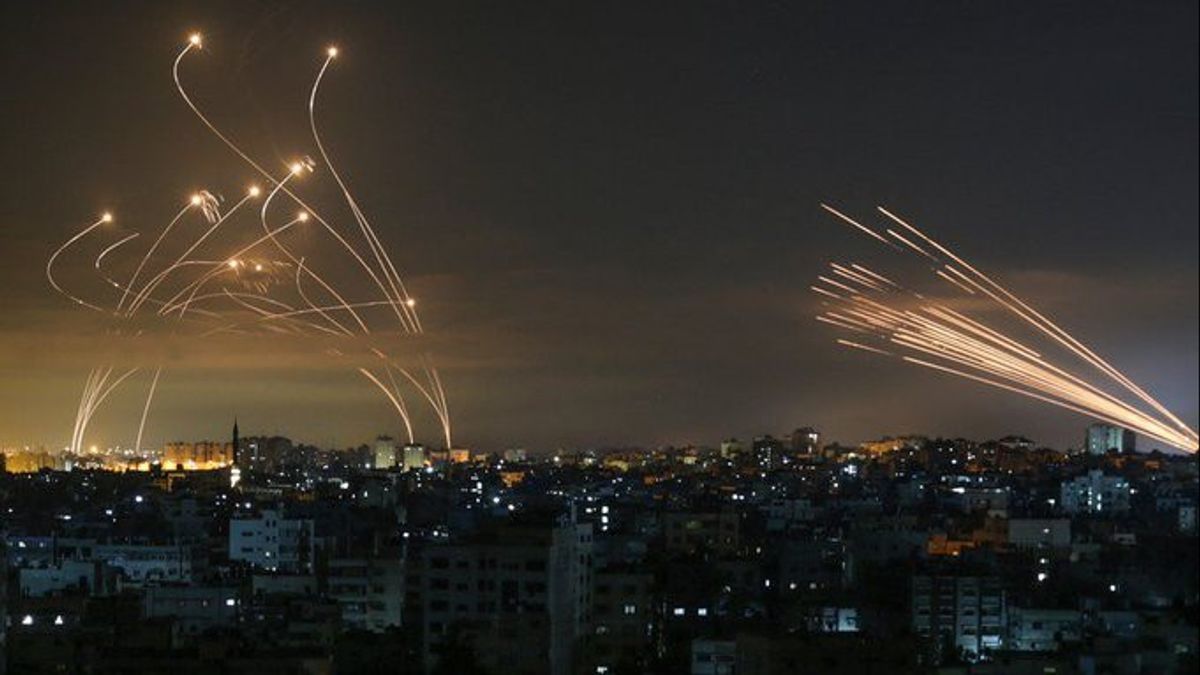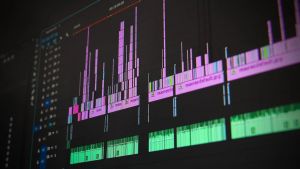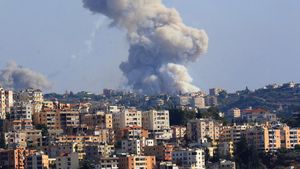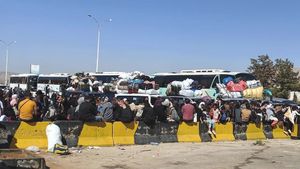JAKARTA - On September 27, just a week before Hamas fighters launched their biggest shock attack on Israel since the 1973 Yom Kippur war, Israeli officials invited the NATO Military Committee to the Gaza border. This zionist nation wants to showcase their use of artificial intelligence (AI) and high-level surveillance.
Israeli officials have showcased about the use of this kind of technology in their last major war in Gaza in 2021. Even their best AI technology and new drones without a doubt have helped in selecting and destroying targets in the region.
However, the failure of these systems in providing advanced warnings about Hamas attacks on Saturday 7 October is an intelligence failure that is likely to be studied and discussed over the years.
The scale of events over the weekend has just begun to emerge, with about 700 Israelis reported killed and hundreds of Palestinians killed in retaliatory attacks in Gaza.
Many of Israel's military positions ahead and communities near Gaza have been captured. Even in many cases, it appears that without warning or little warning. While the launch scale of Hamas missiles has sometimes managed to overcome Israel's advanced Iron Dome defense.
The intelligence agency of the United States and its allies praising themselves for the successful early warning of Russia's invasion of Ukraine in February 2022 seems also shocked. They are also likely to be reviewing what happened to avoid the same thing from the potential conflict that is currently Washington's main concern: China's invasion of Taiwan.
"There may be warning signs," said a former Western intelligence official who did not wish to be named, quoted by Reuters. "Obviously, Hamas can do so without leaving any traces of the data, or the clues exist but are not interpreted from the data."
From drones in the air that use facial recognition software to border checks and electronic eavesdropping of communications, Israel's surveillance of Gaza is considered one of the most intense and sophisticated efforts in the world.
According to a NATO official, Dutch Rear Admiral Robert Bauer, who visited Israel last month to learn from the expertise of Israel's Gaza Division and "seeking innovative military capabilities."
In May, Israel's Director-General of the Ministry of Defense, Eyal Zamir, said the country was on the verge of becoming a "great force" in artificial intelligence, as well as using these techniques to simplify decision-making and analysis.
This weekend's events show that Israeli authorities are starting to overconfidence in these capabilities. This may serve as a warning to other governments increasingly relying on various artificial intelligence contractors who promise to provide sharp analysis and early warning.
These techniques can be invaluable for synthesizing large volumes of data, especially in technical areas such as sonar or radar. However, they are only as good as their material sources - and human activity in dense urban environments such as Gaza is difficult to interpret.
Israel's ongoing airstrikes and possible ground invasion of Gaza will later be considered an opportunity to retaliate against the attack but also strengthen the reputation of Israel's security state and the high technology industry that supports it. Meanwhile Israeli officials argued that the casualties of civilians that might arise remain Hamas' responsibility.
Israeli officials say that any previous war and operations in Gaza have used intelligence and increasingly precise attacks - but their attacks in 2021 have killed nearly 350 Palestinians. The targets currently under attack are likely to have been collected for months for years.
In hiding his attack, Hamas may have been assisted by conditions in the Gaza Strip, in which Hamas took power in 2007 and about 2.3 million people were confined behind the 51 km long border.
Solid and built-up properties in Gaza may have provided assistance to Hamas in placing equipment such as bulldozers close enough to fence borders for use quickly, perhaps without using monitored communications.
To what extent the fighters have been warned by the commanders of the planned attack remains unclear, but given Israel's reputation for recruiting human resources, the Hamas leader may have kept their plans very tight.
Even a warning during hours or minutes may have made a difference for the shocked Israeli army and civilians living close to the Gaza border. The final moments before the attack - when movements could be more easily tracked - may have been missed during the Sukkot religious holiday, as well as previous training including training on paragliding fighters.
Another big question, both for Israel and the world, is what other countries and their previous proxy groups might know.
According to a former Israeli military spokesman Jacob Dallal, who wrote in the Times of Israel this weekend, Israel's intelligence agency this fall believes a greater threat is an attack from Iran-backed Hezbollah group launched from Lebanon.
اقرأ أيضا:
Israel may still worry that the Hamas attack from Gaza is a precursor to it. Hezbollah said on Sunday 8 October that it had fired rockets and artillery at three points in Israel "for solidarity" with the Palestinian people.
Israel is also likely to be more skeptical of Egypt - who pledged to secure their Gaza border - as well as Qatar, which has Hamas political headquarters and mediated an agreement between the group and Israel to reopen Israel-Gaza crossings in late September after two weeks of closure.
When Israel looks for ways to regain hostages, the two countries may become the best channel for negotiations. But there are rumors that many US citizens and other foreign countries may also be killed or detained, Hamas may soon get military action from the US and perhaps wider intelligence resources that come with it.
Hamas described their weekend operations as an attempt to "free up" the Al Aqsa mosque in Jerusalem, which was the site of confrontation between nationalist Jews and Palestinian demonstrators. Thus, they appear to be hoping to exploit existing regional antipathy against Israel and the government of Prime Minister Benjamin Netanyahu in particular.
This, along with anger at Israel's massive military response to Gaza, may disrupt a deal that is being prepared by the US between Saudi Arabia and Israel, which builds a similar agreement with the United Arab Emirates. Stopping it will clearly benefit Iran.
Tehran's direct support statement for the Hamas attack - as well as what Israel says is a continuing effort to send weapons to Hamas and Hezbollah - will also reinforce Israel's suspicions that Iran was directly involved in this weekend's attack.
The English, Chinese, Japanese, Arabic, and French versions are automatically generated by the AI. So there may still be inaccuracies in translating, please always see Indonesian as our main language. (system supported by DigitalSiber.id)


















